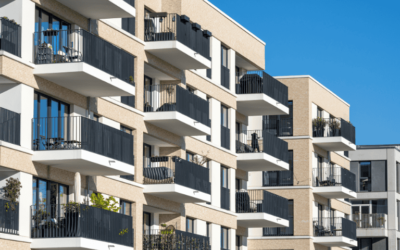Energy efficiency improvements are becoming increasingly more affordable for local businesses and municipalities across Pennsylvania. The emergence of utility incentive programs, free benchmarking tools, and low-cost funding are helping to significantly reduce operating and project implementation costs. Did you know making energy-efficient improvements can reduce wasteful spending by around 30%?
Along with reducing energy costs, upgrading to energy efficient equipment also produces additional benefits that include boosting economic growth, improving community resilience, and helping the community remain competitive.
Added benefits include lower equipment maintenance costs, enhanced building occupant comfort, and LED lighting upgrades can improve building and neighborhood safety. Municipal bonds may even get a ratings boost. For example, Standard and Poor has specifically cited a municipality’s commitment to energy upgrades. A better bond rating could potentially result in lower interest rates for bond financing.
With the differences between states and even the individual utilities within the states, understanding the differences between programs can be daunting. But not to worry, check out our blog feed for more state-by-state and utility-by-utility incentive and rebate programs.
How to Take Advantage of Energy Efficient Incentives in PA
Pennsylvania municipality incentives can take many forms. However, before your community begins applying for grants, rebates, and other forms of financial incentives, there are a few steps you should follow. This will make it easier to identify which incentives fit your planned energy-efficient strategies.
Take Advantage of Government and Utility-Sponsored Tools
Before municipalities can start an energy management program a baseline inventory and facilities audit are necessary. Thanks to tools sponsored by the government and utilities, conducting an audit is becoming a quick and easy process.
For example, the free, online ENERGY STAR® Portfolio Manager tool simplifies tracking energy performance metrics over a given period for a single building or across multiple buildings.
Energy benchmarking can also provide surprising results for municipalities. What community leaders may consider the least energy-efficient building may not be. The tools will help communities focus the investment capital in areas where the biggest differences in energy consumption rates can be realized. This may include a facility previously believed to be energy efficient before the audit is conducted.
Philadelphia is an example. City leaders have benchmarked about half of all municipal properties. Their analysis revealed significant discrepancies among similar buildings, as well as variations in energy intensity across different building types. For example, city prisons represent less than 18% of square footage, yet account for more than 30% of the city’s energy consumption.
Utilities like PECO offer automated systems to transfer utility data into Portfolio Manager to make benchmarking easier and more efficient.
Identify Applicable Energy Efficiency Improvement Projects
The next step to identify Pennsylvania municipality incentives is to select applicable energy efficiency projects.
Advancing technology is opening up new ways for businesses to reduce their energy usage rates. Some examples include installing LEDs and controls in lighting fixtures; replacing traffic signals; upgrading to high-efficiency heating, ventilation, and air conditioning (HVAC) systems; replacing inefficient water treatment pumps and controls; and implementing custom energy management systems.
Delaware County, PA recently upgraded the lighting in Glenolden and Sharon Hill which is resulting in savings that are helping to pay back the initial investments in less than two years.
While projects with the shortest payback times are attractive, it is a good idea to combine them with longer-term goals. By combining short-term projects with deeper retrofit measures, municipalities can justify authorizing projects with extended payback periods given their larger and longer-term savings.
A good tip is to consider the lifespan of a building during the audit. Projects with multi-year paybacks, such as HVAC equipment replacements, commonly provide longer-term value.
PECO is helping businesses reach their energy efficiency goals by providing per-fixture incentives for new interior or exterior lighting, per-ton incentives for new HVAC equipment or system upgrades, and per-kWh-saved rebates for custom projects such as water and wastewater treatment improvements.
Businesses may also be able to take advantage of additional utility incentives including rebates for water heaters and chillers, data centers, food service and refrigeration equipment, new construction, and more.
Secure Financing for Your Energy Efficiency Improvements
The final step before starting your energy-efficient project is to secure financing. Energy efficient incentives in PA include,
- The Guaranteed Energy Savings Act (GESA) allows for third-party financing, repaid through energy cost reductions. Unlike the typical design-bid-build process, municipalities participating in GESA procurement select among a pool of qualified Energy Services Companies (ESCOs). A request for proposals (RFP) procedure allows the issuer to award a contract to any entity whose proposal is timely and meets the municipality’s requirements.
- ESPCs typically provide design-build services, operations, and maintenance support, and an energy savings guarantee for a maximum period of 15 years. Rather than taking funds from operating or capital budgets, municipalities receive a guarantee that the ESPC will deliver energy savings to cover each year’s financing repayment obligation.
- GESA also includes incentives for larger projects. This includes facility alteration and technology upgrades that can reduce energy, water, wastewater, or other consumption or operating costs.
Contact us today to learn more about Pennsylvania municipality incentives your energy-efficient project qualifies for. We can also provide assistance with the application process. Contact us by calling 480-653-8180, emailing [email protected], or schedule a call that fits your needs by clicking the button below!





0 Comments